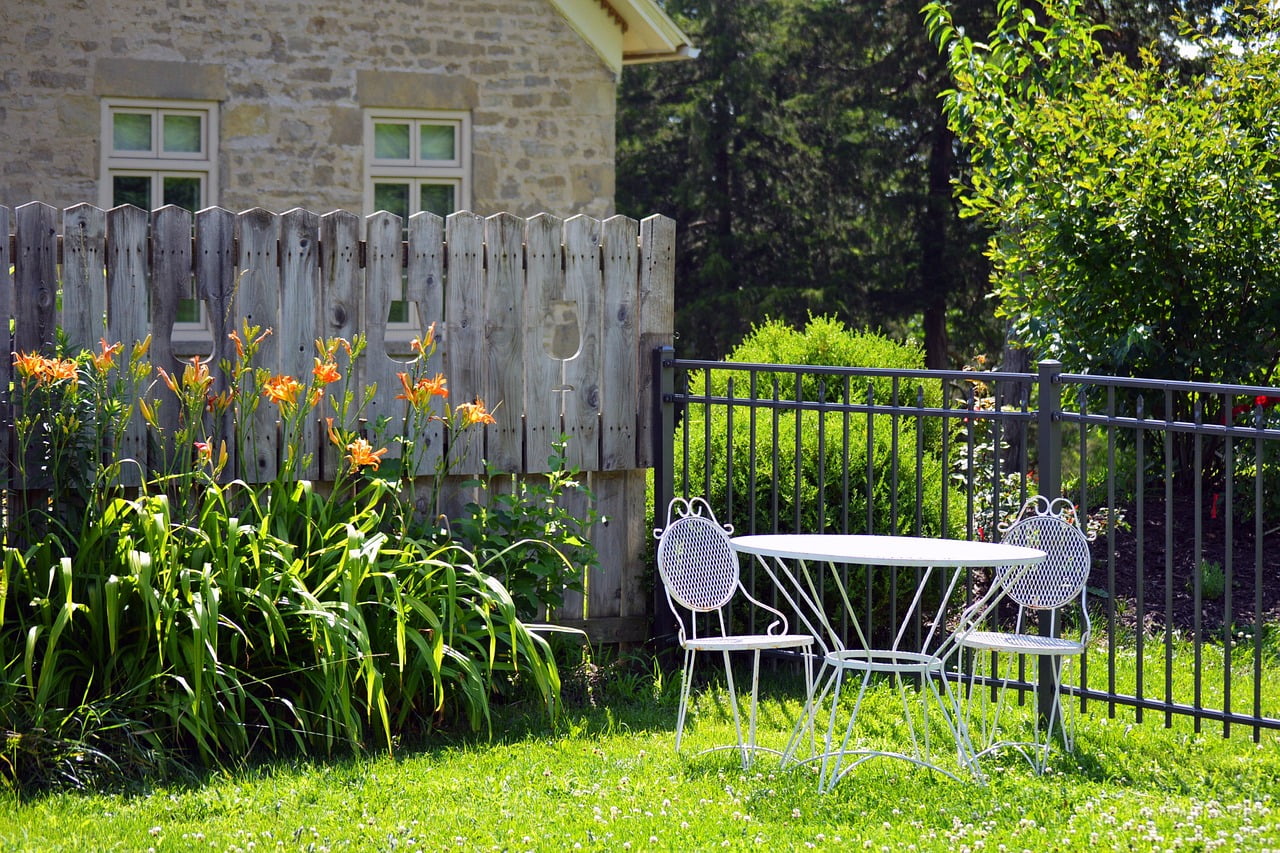When it comes to choosing the best garden fence panel, several factors need consideration, such as material, ease of installment, endurability, and the pros and cons associated with each option.
In our detailed guide, we delve into the intricate world of garden fence panels, exploring the diverse options available and providing insights into the factors that make each one unique.
Different Types of Garden Fence Panels
Wooden Fence Panels
Wooden fence panels are a timeless choice, adding a touch of warmth and natural beauty to your garden. The material offers versatility, allowing for various styles and finishes to suit different preferences.
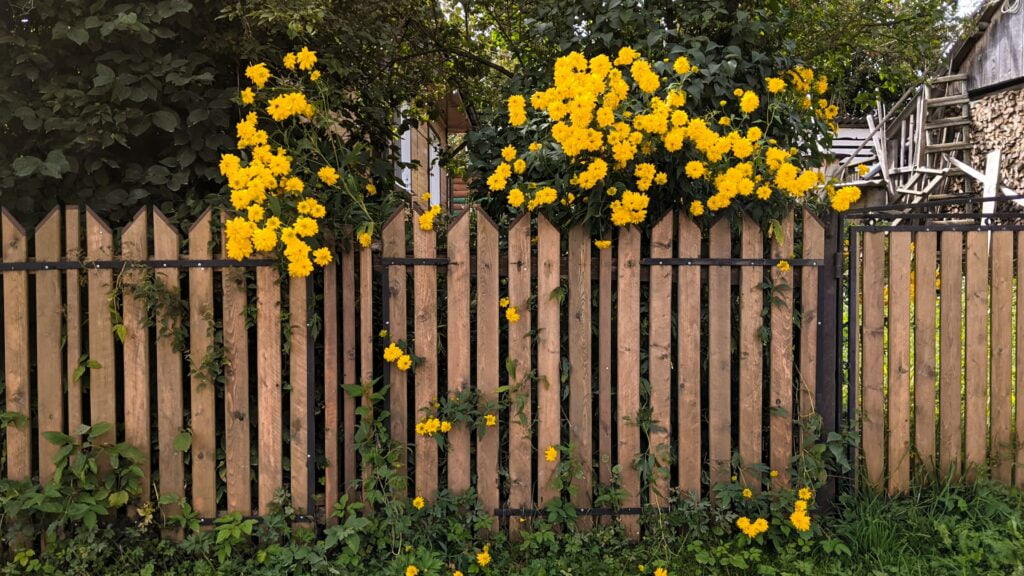
Installation is often straightforward, particularly with pre-made garden fence panels, making it accessible for those with a penchant for DIY projects.
However, wood requires regular maintenance to combat issues like rot and insect damage. The charming aesthetics and customization options make wooden fence panels an excellent choice for traditional garden settings.
- Material: Wooden garden fence panels are a classic choice, offering a natural and rustic look to your garden.
- Ease of Installment: Installation can be straightforward, especially with pre-made panels, making it a viable option for DIY enthusiasts.
- Endurability: Opting for termite-resistant woods enhances durability, reducing the risk of insect damage over time. Regular maintenance remains essential to combat issues like rot.
- Pros and Cons: Wooden panels are customizable, but they may be prone to warping and require periodic staining or painting.
Vinyl Fence Panels
Vinyl garden fence panels have gained popularity for their low-maintenance appeal and ability to mimic the appearance of wood.
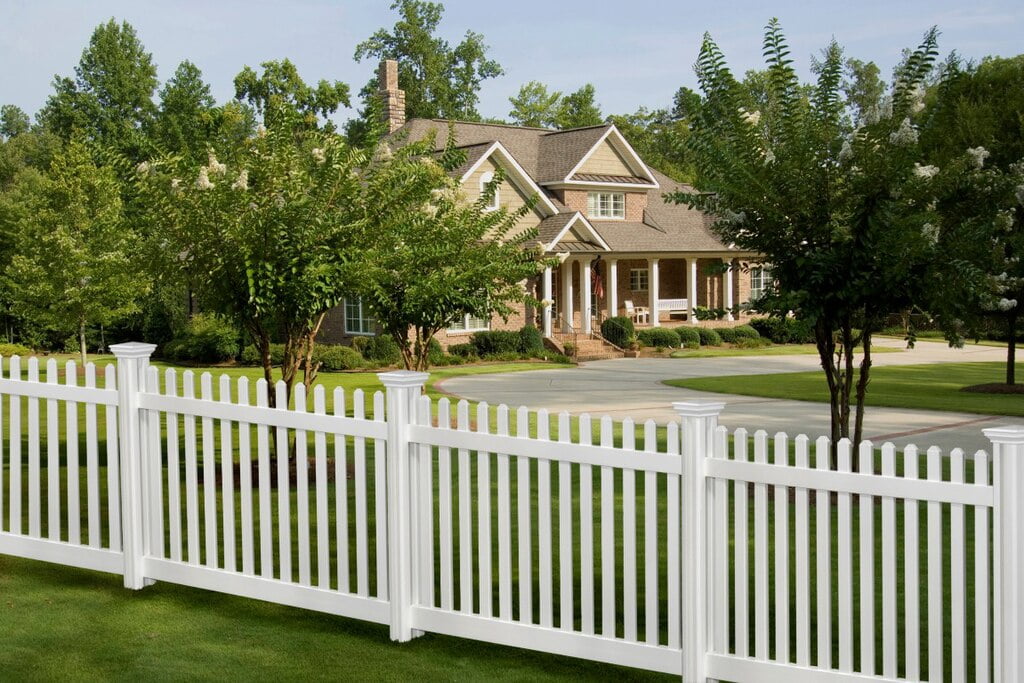
The material is durable, and resistant to rot, insects, and weathering, ensuring a long-lasting solution for your garden. Installation is relatively easy, often featuring interlocking systems for a seamless fit.
While vinyl lacks the traditional charm of wood, its long-term durability and minimal maintenance requirements make it an attractive option for those seeking a hassle-free and modern-looking fence.
- Material: Vinyl fence panels are a low-maintenance alternative, mimicking the appearance of wood without the upkeep.
- Ease of Installment: Vinyl panels are relatively easy to install, often featuring interlocking systems for a seamless fit.
- Endurability: Vinyl is resistant to rot, insects, and weathering, ensuring long-term durability.
- Pros and Cons: While vinyl is long-lasting and requires minimal maintenance, it may lack the traditional charm of wood.
Metal Fence Panels
Metal garden fence panels, whether made of aluminum or wrought iron, provide a robust and secure option for your garden. The material’s strength adds an extra layer of security to your property.
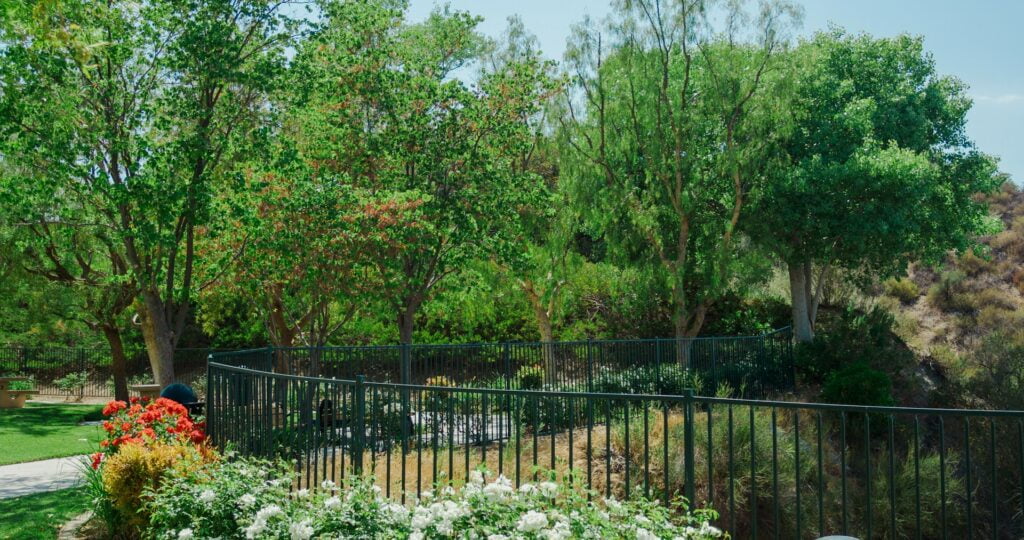
However, the installation process may be more complex, requiring professional assistance due to the weight and intricacy of metal panels.
Metal is highly durable and can withstand harsh weather conditions, but it may be susceptible to rust over time. If you prioritize security and durability and are willing to invest in periodic maintenance, metal fence panels are a solid choice.
- Material: Metal panels, such as aluminum or wrought iron, provide a sturdy and secure option.
- Ease of Installment: Installation can be more complex and might require professional assistance due to the weight and intricacy of metal panels.
- Endurability: Metal is highly durable and can withstand harsh weather conditions, but it may be susceptible to rust over time.
- Pros and Cons: Metal panels offer security and durability but may require periodic maintenance to prevent rust.
Chain Link Fence Panels
Chain link garden fence panels, typically made of galvanized steel, offer a practical and cost-effective solution. Installation is relatively straightforward, and the panels are lightweight compared to some alternatives.
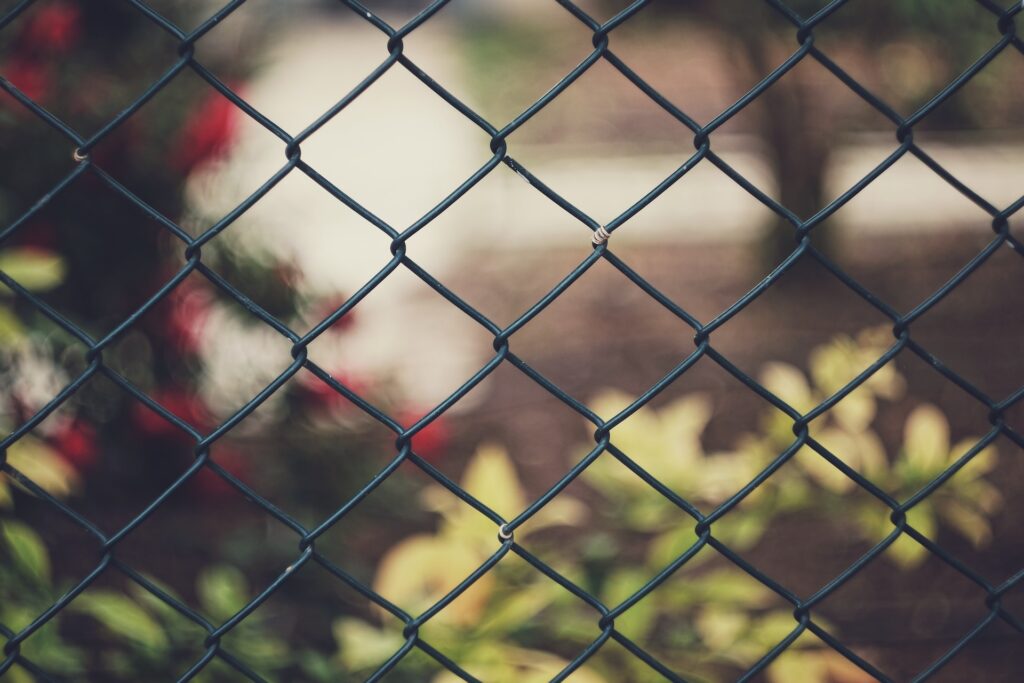
Chain link fencing provides security without completely obstructing the view, making it suitable for those who want a balance between safety and visibility.
While cost-effective and low-maintenance, chain links may not be the best choice for those seeking privacy. Overall, it’s a practical option for defining boundaries and ensuring security in a budget-friendly manner.
- Material: Chain link panels are typically made of galvanized steel, providing strength and visibility.
- Ease of Installment: Installation is relatively straightforward, and these panels are lightweight compared to some alternatives.
- Endurability: Chain link is durable and resistant to weather, but it may not offer the same level of privacy as other options.
- Pros and Cons: Chain link panels are cost-effective and low-maintenance but might not be suitable for those seeking privacy.
Unconventional Garden Fence Panel Options
Besides the traditional choices, several unconventional fencing options can add a unique touch to your garden.
These unconventional options cater to individuals looking for a more distinctive and personalized touch to their garden boundaries.
Bamboo Fencing
Bamboo fencing is an eco-friendly and visually appealing alternative to traditional materials. The natural look of bamboo adds a touch of serenity to your garden, creating a harmonious blend with the environment.

Installation is typically straightforward, and bamboo’s rapid growth makes it a sustainable choice.
While it may not provide the same level of security as other materials, bamboo fencing offers a unique and eco-conscious way to define your garden space.
Gabion Walls
Gabion walls, constructed with wire cages filled with stones or other materials, bring an industrial and modern aesthetic to your garden. These walls are not only durable but also serve as a canvas for creative landscaping.
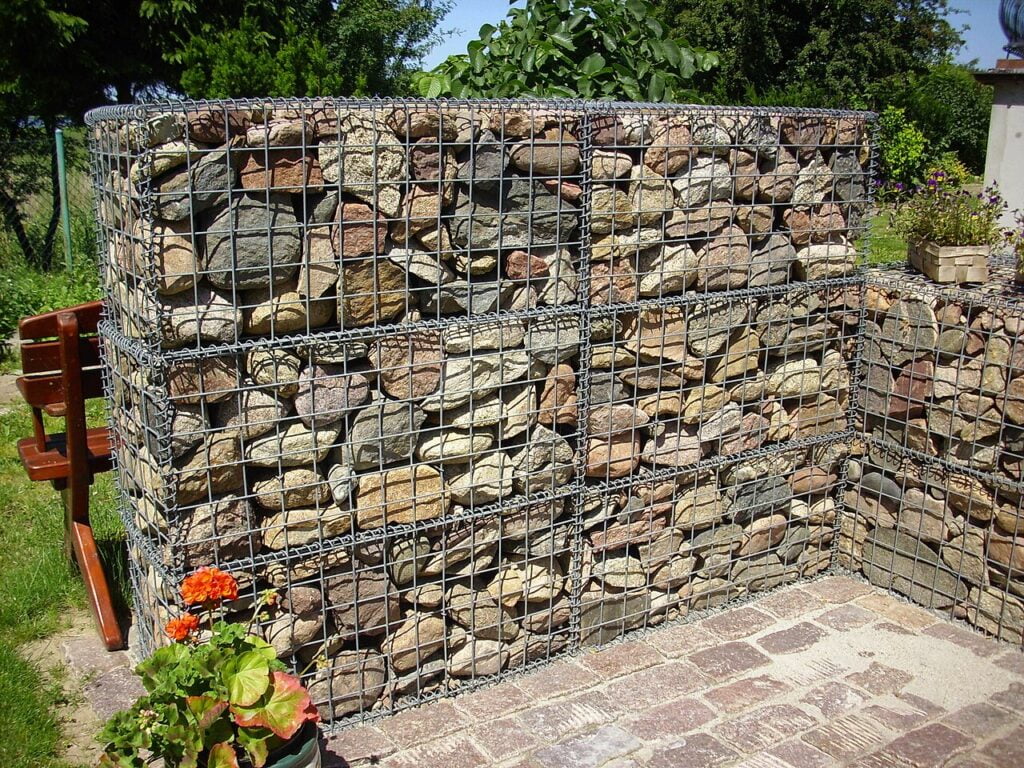
The installation involves stacking the cages and filling them, allowing for a personalized touch with various stone choices.
Gabion walls provide a sturdy and distinctive boundary while allowing for permeability and an interesting visual texture.
Living Fences
Living fences, comprised of plants and shrubs, offer a green and environmentally friendly alternative to traditional fencing. These fences provide a natural barrier while promoting biodiversity and enhancing the overall aesthetics of your garden.
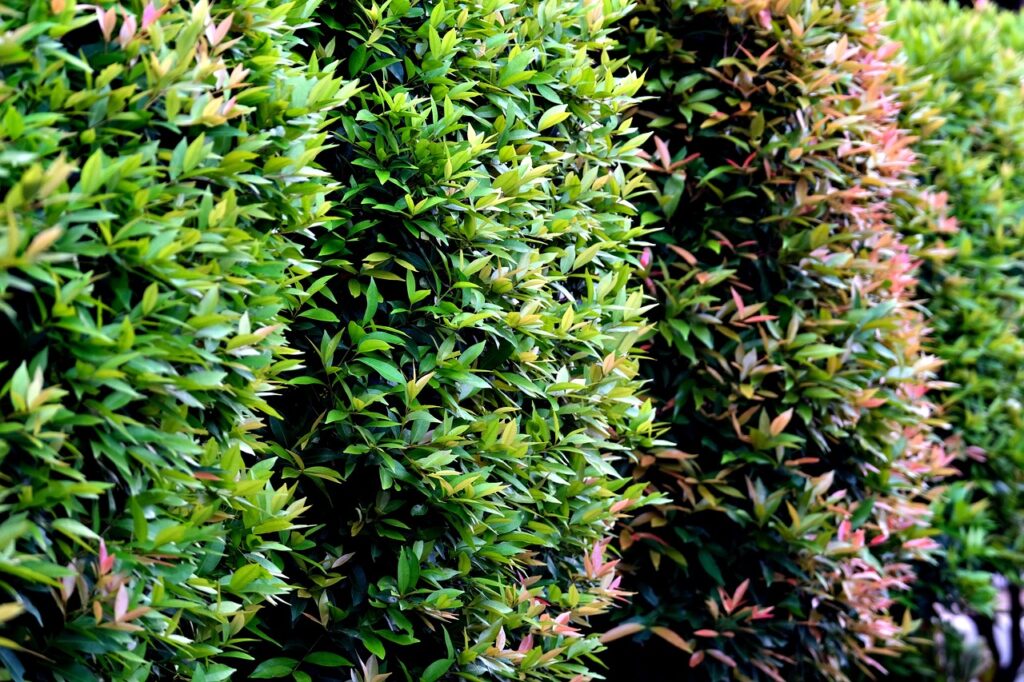
The installation involves selecting and planting suitable vegetation, creating a seamless integration with the landscape.
While living fences may require some maintenance, they contribute to a sustainable and vibrant outdoor space, attracting beneficial wildlife and providing a unique and ever-changing garden boundary.
Choosing the Right Garden Fence Panel
Selecting the perfect garden fence panel is a pivotal decision that goes beyond mere aesthetics; it involves thoughtful consideration of various factors to ensure the chosen panel aligns seamlessly with your garden’s needs and your personal preferences.
Here’s a comprehensive guide to help you make an informed decision:
Purpose and Functionality
Begin by defining the purpose of your garden fence. Are you primarily seeking privacy, security, or a decorative element?
Understanding the intended functionality will guide you in choosing a panel that best serves your needs.
Material
The material of your fence panel not only impacts its appearance but also determines its durability and maintenance requirements.
Wooden panels exude a classic charm but may require more upkeep, while vinyl offers a low-maintenance alternative with a modern look.
Metal panels provide robust security but may need periodic rust prevention measures.
Style and Aesthetics
Consider the overall style and aesthetics of your garden. Wooden panels seamlessly blend with natural landscapes, while metal or vinyl may complement a more contemporary setting.
Choose a style that enhances the visual appeal of your outdoor space.
Ease of Installment
Assess your comfort level with DIY projects and the complexity of the installation process.
Wooden and vinyl panels often cater to DIY enthusiasts with user-friendly installation systems, while metal panels might require professional assistance.
Local Climate Considerations
Take into account the climate of your location. Wooden panels may be prone to rot in humid climates, while metal panels could be susceptible to rust in coastal areas.
Choose a material that can withstand the local weather conditions.
Budgetary Constraints
Establish a realistic budget for your fencing project. Wooden panels are often cost-effective but may require more maintenance over time.
Vinyl and metal panels may have a higher upfront cost but could save on long-term maintenance expenses.
Regulations and Restrictions
Check local regulations and homeowners’ association guidelines regarding fencing.
Ensure your chosen fence panel complies with any height or material restrictions in your area.
Unconventional Options
Don’t shy away from exploring unconventional fencing options like bamboo, gabion walls, or living fences.
These alternatives can provide a unique touch, adding character and eco-friendliness to your garden.
Future Maintenance Considerations
Lastly, think about the long-term maintenance requirements of your chosen panel.
Consider your willingness and ability to invest time and effort into upkeep, as this can impact the lifespan and appearance of your garden fence.
By carefully weighing these factors, you can make a well-informed decision when choosing the right garden fence panel. Remember, the ideal panel is not just about functionality but is an integral part of creating a harmonious and visually appealing outdoor sanctuary.
Maintenance of Garden Fence Panels
While selecting the ideal garden fence panel is a significant step, maintaining its beauty and functionality over time is equally crucial.
Regular maintenance ensures that your chosen fence not only stands as a sturdy guardian of your garden but also continues to enhance its visual appeal.
Here are some general tips for the overall maintenance of garden fence panels:
Cleaning
Regardless of the material, periodic cleaning is essential to remove dirt, grime, and mildew that can accumulate over time.
For wooden panels, gentle scrubbing with a mixture of mild soap and water can work wonders, while vinyl and metal panels may benefit from a simple hose-down.
Sealing and Staining
Wooden fence panels often require sealing or staining to protect them from the elements. This process helps prevent issues like rot, mold, and insect damage.
Reapply sealant or stain as needed, typically every few years, depending on the climate and exposure to sunlight.
Rust Prevention
For metal panels, especially those made of iron or steel, rust prevention is key.
Regularly inspect the fence for any signs of rust, and promptly address these areas by cleaning, sanding, and applying a rust-resistant primer and paint.
Checking for Damage
Periodically inspect your fence for any signs of damage, such as loose panels, broken pieces, or sagging.
Addressing these issues promptly can prevent further damage and extend the life of your fence.
Vegetation Control
If you have opted for living fences or have vegetation near your panels, ensure that plants are not causing damage.
Trim any overgrown branches or vines that may be encroaching on the fence, as they can lead to moisture retention and potential damage over time.
By incorporating these maintenance practices into your routine, you not only protect your investment but also contribute to the long-lasting beauty and functionality of your garden fence.
With the right care, your chosen fence will continue to stand as a reliable and aesthetically pleasing guardian of your outdoor sanctuary.
Conclusion
In conclusion, the choice of a garden fence panel depends on various factors, including personal preferences, aesthetics, and the intended functionality of the fence.
Whether opting for a conventional material like wood, vinyl, or metal, or exploring unconventional options like bamboo, gabion walls, or living fences, each choice contributes to the overall character of your garden while serving its practical purpose.
Also Read: Copper Gardening Tools: A Durable and Aesthetic Choice
Well, what do you think about the article?
Did you enjoy reading “Choosing the Best Garden Fence Panel: A Comprehensive Guide“? If so, please comment down below. We would love to hear your thoughts about this post.
To see more content like this check the gardening section of Money For My Beer.

Lara is a freelance content writer and a cat mom to three furbabies, Mizu, Haru and Sora.
She graduated with a Bachelor’s Degree in Architecture and is a registered and licensed Architect. Aside from writing, she is fond of growing cacti and succulents and is a DIY type of girl.
During her free time, she engages herself in water-colouring and crocheting, while catching-up with an old tv series she just discovered. Lara loves to explore new places, but most of the time stays in her hometown province, reading historical romance novels over a cup of coffee – or matcha.

